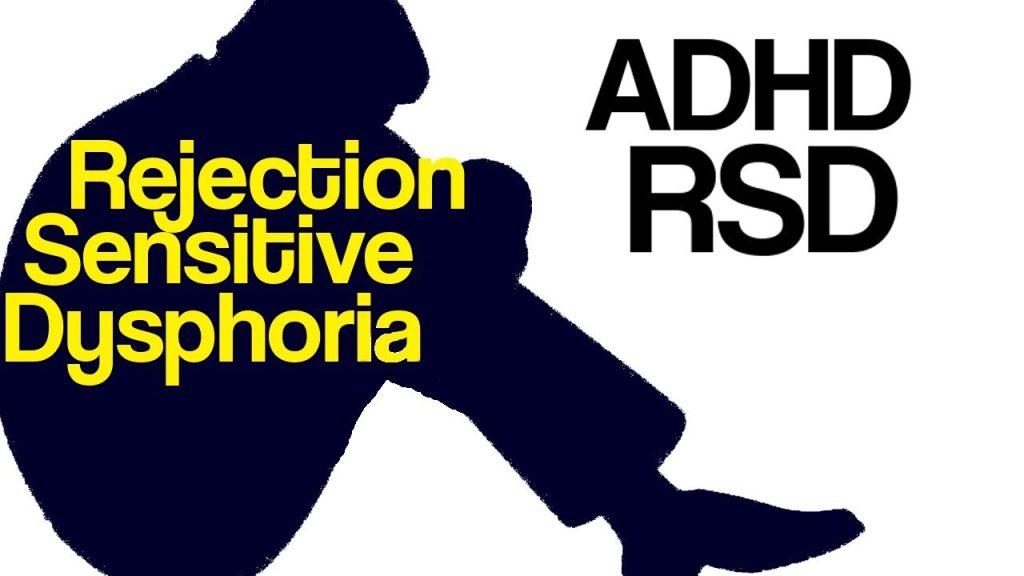Attention Deficit Hyperactivity Disorder (ADHD) has been in the news a lot lately. There is a lot of talk about ADHD and how it affects people’s lives. But what is RSD ADHD? This is a question that a lot of people are asking these days. In this blog post, we will discuss everything you need to know about RSD ADHD. We will talk about the symptoms, causes, effects, and treatment options for this condition. We will also hear from experts who have experience with RSD ADHD. So, if you are interested in learning more about this condition, keep reading!
Contents
Understanding RSD (Rejection Sensitive Dysphoria) ADHD
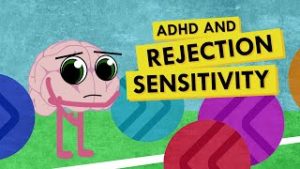
RSD ADHD is a recently discovered condition that is very similar to ADHD. However, the main difference between RSD ADHD and regular ADHD is that people with RSD ADHD are more sensitive to rejection and criticism. They tend to experience extreme emotions (such as sadness, anger, or anxiety) in response to any type of negative feedback.
Types of RSD ADHD
There are three different types of RSD ADHD:
Type I: People with Type I RSD ADHD are hypersensitive to rejection and tend to avoid social situations. They often have trouble making friends and can be very shy around others.
Type II: People with Type II RSD ADHD are less sensitive to rejection than people with Type I RSD ADHD, but they still experience a lot of negative emotions in response to criticism. They are more likely to have problems with relationships and can be very defensive around others.
Type III: People with Type III RSD ADHD are the least sensitive to rejection. They often have no problem making friends and don’t shy away from social situations. However, they still experience a lot of negative emotions in response to criticism.
Symptoms of RSD ADHD
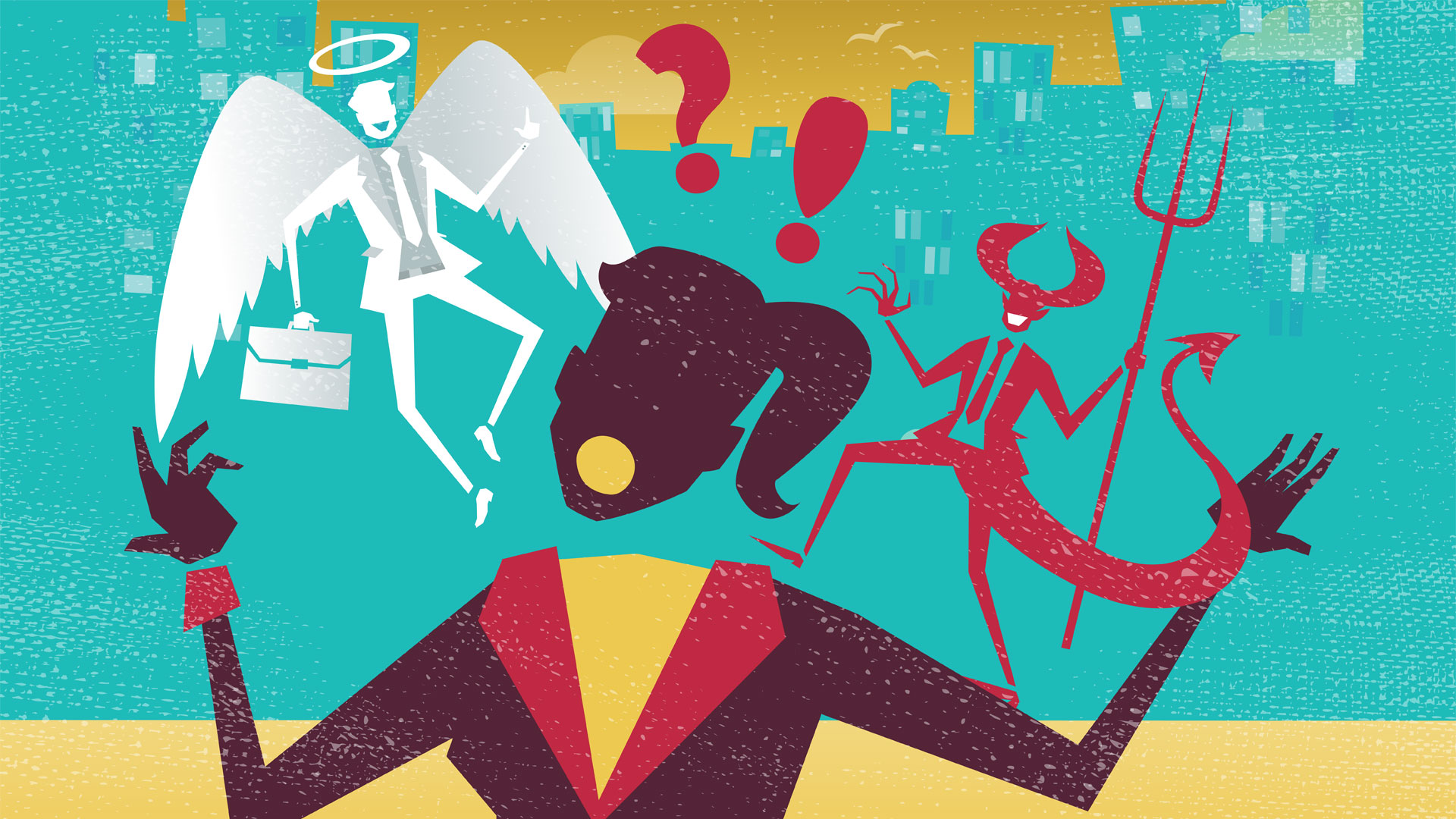
There are many symptoms of RSD ADHD, but some of the most common ones include:
Feeling very sensitive to rejection or criticism: People with RSD ADHD often feel like they can’t handle any type of negative feedback. They may feel sad, angry, or anxious in response to criticism from others.
Example: “I always feel so sad and angry after my boss tells me that I didn’t do a good job.”
Having a hard time tolerating mistakes: People with RSD ADHD are often very perfectionistic and have a hard time forgiving themselves for making mistakes.
Example: “I can’t stand the thought of making a mistake, so I spend hours going over my work until I’m sure it’s perfect.”
Feeling defensive around other people: People with RSD ADHD often have a hard time trusting others and may feel like they need to protect themselves from getting hurt. They may react strongly to any type of conflict or disagreement and can be very defensive around others.
Example: “I get so angry when someone disagrees with me, I just can’t help it.”
Having problems with relationships: People with RSD ADHD often have trouble maintaining healthy relationships. They may be defensive around others, have difficulty trusting people, or be very reactive to any type of conflict.
Example: “I always seem to end up arguing with my friends. I can’t help it, I just get so defensive when someone disagrees with me.”
Feeling overwhelmed by emotions: People with RSD ADHD may feel like they are constantly on edge and can’t control their emotions. They may feel like they are constantly experiencing intense emotions such as sadness, anger, or anxiety.
Example: “I feel like I’m always on the verge of tears or getting angry and I can’t control it.”
Having problems with self-esteem: People with RSD ADHD often have low self-esteem and struggle with feelings of worthlessness.
Example: “I always feel like I’m not good enough, no matter how hard I try.”
DSM and Its Criterion
The DSM (Diagnostic and Statistical Manual of Mental Disorders) is a guidebook that psychiatrists use to diagnose mental disorders. It lists all of the criteria that must be met for a diagnosis to be made.
People with RSD ADHD meet many of the criteria listed in the DSM for ADHD. But they also meet additional criteria specific to RSD ADHD. The main criterion that is unique to RSD ADHD is the sensitivity to rejection or criticism.
Causes of RSD ADHD
There are many different causes of RSD ADHD, but some of the most common ones include:
Genetics: Some research suggests that there may be a genetic component to RSD ADHD. This means that it may be passed down from parents to their children.
Environment: The environment can also play a role in the development of RSD ADHD. Difficult life experiences, such as being rejected or criticized often, can increase the risk of developing RSD ADHD.
Brain chemistry: There is some evidence that people with RSD ADHD have different brain chemistry than those without the disorder. This may be why they are more sensitive to rejection and criticism.
Risk Factors of RSD ADHD
Some risk factors can increase the chances of developing this ADHD. These include:
Having a parent or sibling with RSD ADHD: People who have a close relative with RSD ADHD are more likely to develop the disorder themselves.
Living in a stressful environment: People who live in a stressful environment, such as one that is chaotic or unpredictable, are more likely to develop RSD ADHD.
Experiencing difficult life experiences: Difficult life experiences, such as being rejected or criticized often, can increase the risk of developing RSD ADHD.
RSD ADHD Vs. ADHD
There are some similarities between RSD ADHD and ADHD. But there are also some important differences.
- People with ADHD often have problems with focus and attention. They may be easily distracted or find it difficult to stay on task.
- People with RSD ADHD, on the other hand, often have problems with impulse control. They may be very reactive to conflict or be unable to control their emotions.
- People with ADHD are not usually as sensitive to rejection or criticism as people with RSD ADHD.
RSD ADHD And Perfectionism
Many people with RSD ADHD also struggle with perfectionism. They often have high standards for themselves and feel like they need to be perfect to be accepted by others.
This can lead to a lot of stress and anxiety, as well as difficulty completing tasks or projects. Simply because they cannot stand the thought of making a mistake.
Living With RSD ADHD
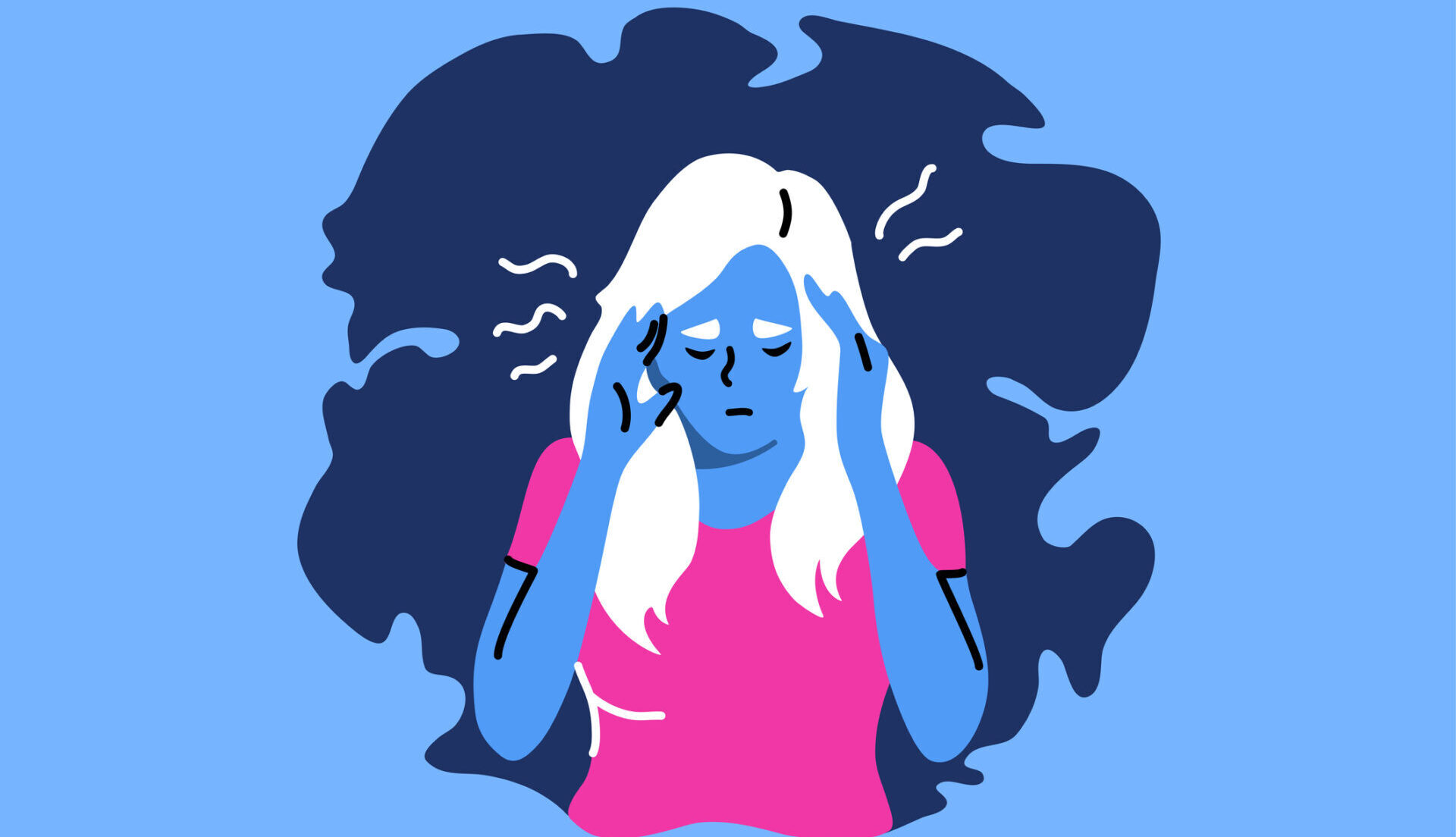
People with RSD ADHD often face many challenges in their lives. Some of the most common ones include:
In Relationships
People with RSD ADHD often have trouble maintaining healthy relationships. They may be defensive around others, have difficulty trusting people, or be very reactive to any type of conflict.
Difficulty trusting people: People with this ADHD may have difficulty trusting other people and may not feel like they can rely on anyone.
Example: “I always feel like people are just going to leave me or let me down.”
Reactive to conflict: People with this ADHD may be very reactive to any type of conflict and can have a difficult time resolving disagreements.
Example: “I always seem to end up arguing with my friends. I just can’t help it.”
In the Workplace
People with RSD ADHD often have difficulty in the workplace. They may struggle with tasks that are routine or monotonous, have trouble staying on track, and find it difficult to focus.
Struggling with routine tasks: People with this ADHD may struggle with tasks that are routine or monotonous. They may find it difficult to stay on track and can easily become bored with these types of tasks.
Example: “I can’t seem to focus on anything for more than a few minutes.”
Having difficulty staying on track: People with this ADHD may have difficulty staying on track and can easily lose focus.
Example: “I start working on a project and then I get sidetracked and never finish it.”
Difficulty focusing: People with this ADHD may find it difficult to focus on tasks and may be easily distracted.
Example: “It’s hard for me to stay focused when there’s a lot of noise around me.”
In Social Situations
People with RSD ADHD often find it difficult to socialize. They may feel uncomfortable in social situations, have a hard time making friends, or be shy around others.
Uncomfortable in social situations: People with this ADHD may feel uncomfortable in social situations and can feel out of place among other people.
Example: “I don’t know what to say to people and I feel like everyone is just staring at me.”
Having difficulty making friends: People with this ADHD may have a hard time making friends and may not have many close relationships.
Example: “I can’t seem to keep any friends for more than a few months.”
Shy around others: People with this ADHD may be shy around others and find it difficult to socialize.
Example: “I don’t like talking to people I don’t know.”
Coping With RSD ADHD
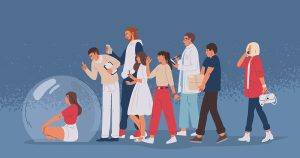
Living with RSD ADHD can be difficult. There are a few things that can help people with this ADHD cope better in their lives. Some of the most helpful tips include:
Talk to someone you trust: Talking to someone you trust can help you deal with the challenges of living with this ADHD.
Set realistic goals: Setting realistic goals can help prevent disappointment and frustration.
Exercising regularly: Exercise can help reduce stress and anxiety and can be a great way for people with this ADHD to release energy.
Seek support: Seeking support from family members, friends, or professionals can be helpful.
Putting things in writing: People with this ADHD may find it helpful to put their thoughts and feelings down on paper. This can help them organize their thoughts and make sense of them.
Tips For Taking Feedback Constructively
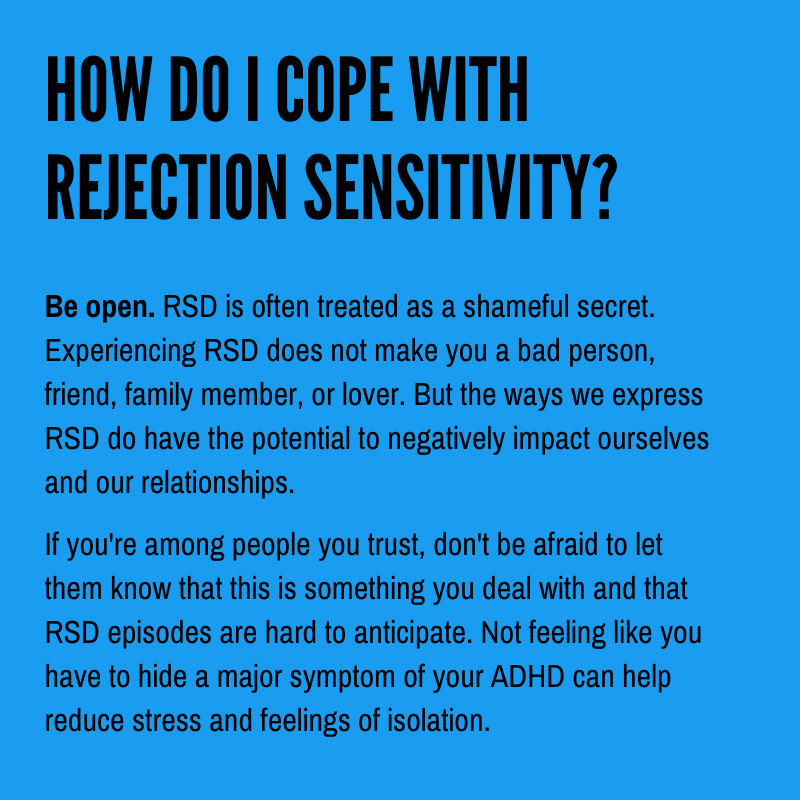
When taking feedback, people with RSD ADHD should try to:
Listen carefully: When receiving feedback, it is important to listen carefully and not interrupt.
Acknowledge the feedback: Acknowledging the feedback shows that you have heard what has been said and can help build a positive relationship with the person giving the feedback.
Thank the person for their feedback: Thanking the person for their feedback shows that you appreciate their input.
Evaluate the feedback: Evaluating the feedback will help you determine if it is helpful and applicable to you.
Use the feedback to improve: If the feedback is helpful, use it to improve your work or relationships.
Talking To a Professional

If you are struggling with RSD ADHD, talking to a professional may be the best option for you. Professionals who can help include:
Psychologists: Psychologists specialize in helping people deal with their mental health and emotions.
Counselors: Counselors specialize in helping people manage their life challenges and relationships.
Clinical Psychologists: Clinical psychologists specialize in diagnosing and treating mental health disorders.
Psychiatrists: Psychiatrists are medical doctors who specialize in the diagnosis and treatment of mental health disorders.
Making The Most Of Your Treatment
There are a few things that people with this ADHD should keep in mind when talking to a professional. Some of the most important points include:
Finding the right therapist: Not all therapists will be able to help someone with this ADHD. It is important to find a therapist who understands and has experience treating this condition.
Being honest: It is important, to be honest with the therapist and share everything that is going on in your life. This will help them provide the best possible treatment.
Sticking with it: Treatment for this ADHD can take time and effort. It is important to be patient and stick with it, even if there are setbacks along the way.
Treatment Options
There are a few different types of treatment that can help people with RSD ADHD. These include:
Therapy: Therapy is often one of the most effective treatments for this ADHD. It can help by teaching people how to manage their symptoms and teaches them new skills to use in everyday life.
Medication: Some people with this ADHD may benefit from medication. There are a few different medications that can help, but it is important to work with a doctor to find the best one for you.
Therapies For RSD ADHD
There are a few different therapies that can be helpful for people with RSD ADHD. Some of the most common therapies include:
Cognitive therapy: Cognitive therapy helps people understand and change the negative thoughts and beliefs that contribute to their symptoms.
Behavioral therapy: Behavioral therapy focuses on changing troublesome behaviors. It can be helpful for people with this ADHD who have trouble controlling their impulses or are disruptive in social situations.
Family therapy: Family therapy can help families learn how to best support their loved one with this ADHD. It can also help to identify any patterns of behavior that may be contributing to the disorder.
Interpersonal therapy: Interpersonal therapy helps people understand and deal with the relationships they have. It can be helpful for people with this ADHD who often have difficulty in social situations.
Group therapy: Group therapy is a type of cognitive-behavioral therapy that takes place in a group setting. It can be helpful for people with this ADHD who feel shy or uncomfortable around others.
Medications For RSD ADHD
There are a few different medications that can be helpful for people with RSD ADHD. Some of the most common medications include:
Stimulants: Stimulants are often the first medication prescribed for people with this ADHD. They help by increasing focus and energy.
Non-stimulants: Non-stimulants are medications that can be used if stimulants do not work or cause adverse effects.
Antidepressants: Antidepressants can be helpful for people with this ADHD who also have depression.
Anti-anxiety medications: Anti-anxiety medications can be helpful for people with this ADHD who suffer from anxiety.
Helping Someone With RSD ADHD

If you know someone who has RSD ADHD, there are a few things that you can do to help them. Some of the most helpful tips include:
Understanding: It is important to try and understand what the person with this ADHD is going through. This can be difficult, but it is key to providing support.
Listening: Listening to the person with this ADHD is one of the most important things you can do. Let them talk about their feelings and what they are going through.
Helping them stay organized: Organization can be a challenge for people with this ADHD. Help them keep their things organized and make a plan for how they will handle tasks.
Providing support: Offer emotional and practical support to the person with this ADHD. Let them know that you are there for them.
Encouraging treatment: many people with this ADHD find relief from the treatment. Encourage your loved one to seek treatment.
Being patient: Dealing with this ADHD can be tough, but it is important to be patient and supportive.
Experts’ Opinion On RSD ADHD
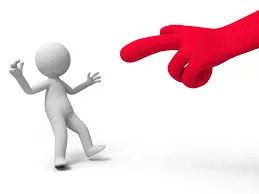
RSD ADHD is a real disorder that can cause significant challenges for those who suffer from it. There is still much unknown about the disorder, but experts agree that it is a real condition that causes difficulties in many areas of life. The brain activity of people with this ADHD is still being studied. And more information will be available in the future.
There is still much unknown about this ADHD. However, experts do agree that it is a real disorder that causes significant challenges for those who suffer from it. The disorder is still being studied, and more information will be available in the future.
Brain Activity In RSD ADHD
There are a few studies that have looked at brain activity in people with RSD ADHD. Studies have shown that people with this ADHD have a different response to negative feedback. When performing a task, people with this ADHD show more activation in certain parts of the brain. This may be because they are constantly trying to compensate for their disorder. More research is needed to understand this phenomenon.
NOTE: The prefrontal cortex, striatum, and anterior cingulate cortex are all involved in this ADHD. These areas of the brain are responsible for regulating behavior, emotions, and focus. The role of these areas in this ADHD is still being studied.
Case Study
A case study published in 2016 looked at a woman with RSD ADHD who had struggled with the disorder for many years. The study found that the woman had difficulty focusing and paying attention, trouble controlling her impulses, and problems in social situations. The study also found that the woman had difficulty with anxiety and depression. The woman underwent treatment with a therapist and medication, and she reported significant improvement in her symptoms.
Conclusion
People with RSD ADHD face many challenges in their lives. However, there is help available. There are a variety of treatments that can help people with this ADHD manage their symptoms and live a more productive life. With support from loved ones, friends, and professionals, those with this ADHD can learn to cope with their disorder and lead successful lives.
A Word From Therapy Mantra
Your mental health — Your psychological, emotional, and social well-being — has an impact on every aspect of your life. Positive mental health essentially allows you to effectively deal with life’s everyday challenges.
At TherapyMantra, we have a team of therapists who provide affordable online therapy to assist you with issues such as depression, anxiety, stress, workplace Issues, addiction, relationship, OCD, LGBTQ, and PTSD. You can book a free therapy or download our free Android or iOS app.
